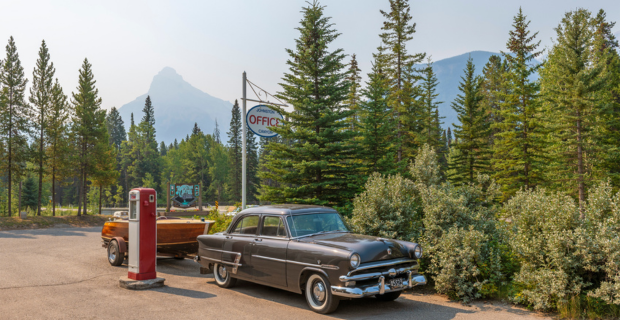Date Published: 2024/07/18
Read Time: mins
Fueling your collector car the right way

Your classic car is decades old, but the gasoline used as a new car is no longer available. No matter how long you’ve owned your collector car, getting your car fuel type right is essential. This can help improve engine life and vehicle performance, regardless of how frequently or infrequently you drive your classic car.
Stay away from gasoline made with ethanol for your collector car
Most gas stations in Canada sell gasoline made with at least 10 per cent ethanol. While this blend may work well in modern cars, it can cause extensive damage in vehicles manufactured several decades ago. Ethanol absorbs water, which can be a good thing when the fuel tank sends it to the engine.
When car fuel made with ethanol sits for an extended period, as is often the case with classic cars, the water separates from the fuel and sinks to the bottom of the gas tank. This becomes a problem during the humid summer weather when the water and ethanol corrode. If you do not drive your collector car for months, gas with 10 per cent ethanol can cause widespread damage as it moves from the tank to other parts of the vehicle.
Vintage cars typically have metal fuel tanks that need to be adequately sealed. Over time, these older cars fall victim to missing emission systems and degradation. Moist air gets into the gas tank, which the ethanol in the gasoline absorbs and separates into water. You will eventually experience rust in your gas tank and the performance issues that go along with that.
If your collector car typically sits for months without anyone driving it, even adding a fuel stabilizer will not help. The water sitting in the gas tank does not dissolve, nor does the fuel stabilizer change the hygroscopic properties of the ethanol.
Octane is the proper fuel for your collector car
Modern cars typically perform well when fueled with gas containing octane. The one downside with collector cars is that some of them do not have a knock sensor to let you know that the engine is in distress. A knocking sound coming from your engine is never good, whether you drive a modern or classic vehicle. Vintage cars with high-compression engines and octane fuel can still create knocking or pinging sounds in the engine.
If you are on the road with your collector car and the engine starts to make knocking sounds, you can try to rotate the distributor to see if that causes the noise to stop. You may need fuel with a higher amount of octane if the problem persists even after your attempts to correct it. We recommend starting with the highest amount of octane available and avoiding ethanol altogether, if possible.
Is your classic car insurance up to date?
Spring is an exciting season for owners of collector cars who have been waiting months to take them out for a drive. With all the maintenance you must do after your car spends all winter in storage, it can be easy to overlook the need to properly insure it. Orbit Insurance Services specialises in providing coverage for vintage vehicles. Contact an Orbit insurance broker at your convenience to discuss your collector car insurance needs.